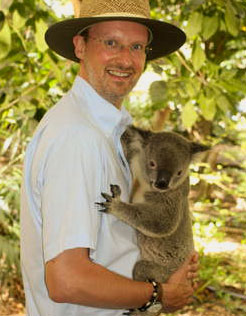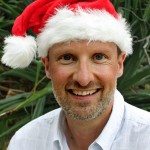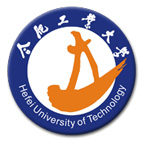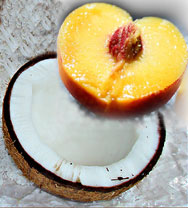Our show is getting more and more international. My English co-host Anne Fox has been doing her shows from Denmark where she lives with her family, our half-German half Italian and half Swiss editor Dino Nogarole is currently doing his semester abroad in León and so is editing the sound files from Spain – and I am still in Queensland, Australia where I am teaching and doing some research for one semester. However, thanks to the new media – email, virtual drives, and digital platforms – such international cooperation is feasible which means that we can bring fresh, new and I hope interesting reports from around the world directly into your ears. Our interviewees today are from Spain, Canada, and from Hungary.
absolutely down-under
Some people who listened to my absolutely down-under reports asked me whether, apart from a “Tropical Christmas by the Pool” or a “National Australia Day” which I described both in previous shows – a very normal, regular day in Australia would also be different for a European. So, I followed myself with the microphone one morning and recorded my intercultural impressions from getting up at 7 o’ clock until I arrived at the University of the Sunshine Coast at 9. You will notice from my comments how much I like it here – except for the first minutes after waking up – I admit, I am not a morning person.
absolutely confused
In our second category we go to an unusual language classroom in Canada where the Chinese teacher encourages the students to interrupt the teaching if they are thirsty. In different cultures some gestures mean different things. Symbols are not universal. But what do you do when a good friend from abroad uses a gesture that offends you? Do you choose to ignore it and pretend nothing happened? Or do you talk to your friend and explain that the gesture is not acceptable in your culture? Listen to what John Kaethler from Brock University in Kanada did, maybe we can learn some general strategies about how to react constructively to these intercultural incidents.
absolutely tiny
Have you ever needed to construct an image of yourself, because otherwise people won’t take you seriously? When you start a new job or move to another city you could plan to try out something new. So, quite some time ago we asked Marlen from Spain and Anita from Hungary how they have worked on their personal image projection when they first started their new jobs, teaching at a university. Marlén describes how she wanted to prove to the students that she was the teacher and perhaps went a little over the top to the point that one of her students was frightened.
To vote for us at the “European Podcast-Award”, just click here and you will find a list with several podcast. We are very thankfull for every vote we get.
Our next show will be coming to you from Anne Fox in Denmark on 05.03.
Until then – Bleiben Sie absolut interkulturell!
The host of this show is: Dr. Laurent Borgmann
Editor: Dino Nogarole





 The drumming which starts the show was recorded when the Ghanaian drummers of
The drumming which starts the show was recorded when the Ghanaian drummers of 

 Even if we expect differences when we travel or meet foreigners in our own countries – the best and most intensive intercultural learning is always accompanied by small culture shocks. Our show today will focus on the
Even if we expect differences when we travel or meet foreigners in our own countries – the best and most intensive intercultural learning is always accompanied by small culture shocks. Our show today will focus on the 